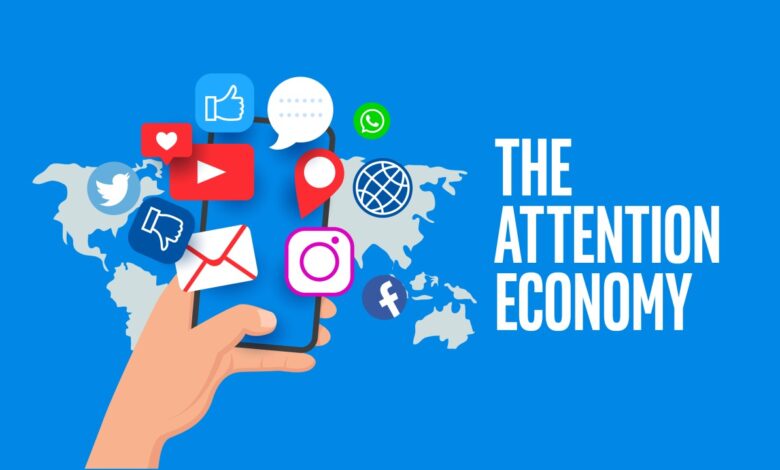
We live in an age where focus is the scarcest resource. The average person scrolls through hundreds of pieces of content each day, barely stopping for a few seconds before moving on. For entrepreneurs, this is both the challenge and the opportunity of our time. The “attention recession” means building businesses when customers may not even finish a 30-second video, let alone read a full web page.
Entrepreneurship used to reward those who could write long sales letters or craft detailed presentations. Now, the winners are the ones who can deliver value in seconds, build trust in moments, and hold attention long enough to spark action. Competing in this environment demands new tools, new strategies, and a mindset built for speed. But as history shows, every shift creates room for innovation—and entrepreneurs are already rising to the challenge.
Why Attention Is Shrinking
Technology is both the culprit and the catalyst. Social platforms engineered for endless scrolling have rewired brains to expect instant rewards. Notifications, autoplay, and short-form videos have shortened patience for long reads or complex explanations. Consumers no longer give brands the benefit of the doubt; they judge instantly, and move on just as fast.
But this environment doesn’t spell doom—it signals evolution. Businesses must design for immediacy while still offering depth when customers want it. Short hooks can lead to long-term loyalty if they’re authentic and consistent. The attention recession, then, isn’t the end of focus—it’s a reminder to respect it. Entrepreneurs who understand this can thrive while others get lost in the noise.
Andrew Dunn, Vice President of Marketing at Zentro Internet, has seen the shift firsthand.
“In marketing, I’ve learned that clarity and speed are everything. At Zentro, we had to rethink our messaging so people understood our value in under ten seconds. I once tested a campaign with long copy, and engagement dropped by 40%, but when we led with one strong line and clean visuals, conversions went up. For me, the attention recession isn’t about losing customers—it’s about winning them faster by cutting the clutter.”
Dunn’s experience shows that simplicity isn’t a downgrade; it’s a necessity in today’s market.
Building Systems That Save Time
If consumers have less focus, businesses must make every second of interaction easier. That’s where automation and smarter systems come in. Customers may not wait for long onboarding, slow responses, or confusing processes. They expect seamless interactions.
Entrepreneurs can meet this demand by leveraging AI, workflow tools, and collaborative platforms. The goal is to remove friction, letting clients focus on value instead of administration. It’s not just about grabbing attention—it’s about keeping it by respecting people’s time.
Pavel Sher, Founder and CEO of FuseBase, built his company around this very principle.
“Running multiple ventures taught me that wasted time is the biggest enemy in business. At FuseBase, we created a hub that puts communication, automation, and client processes in one place. One client cut admin tasks by 30% in the first month, which meant they could spend more time on billable work. I believe the way to fight the attention recession is to give people their time back—and they’ll reward you with loyalty.”
Sher’s approach reflects a growing truth: entrepreneurs must respect attention by engineering efficiency.
Storytelling in Seconds
Even in short bursts, people crave connection. The businesses that win attention aren’t just efficient; they tell compelling stories in compact ways. Whether it’s a 10-second video, a bold headline, or a simple testimonial, these micro-stories carry the power to spark trust and curiosity.
Entrepreneurs should practice distilling their message into what matters most: Who are you? Why do you exist? How do you help me? When done authentically, even a few seconds can open the door to deeper engagement later.
Alexander Liebisch, Founder of TinderProfile, knows how much first impressions matter.
“TinderProfile started because I realized how little time people spend deciding on someone online. I had just gone through a personal change and saw the gap—people wanted great photos fast to make strong first impressions. By building an AI tool that turned ordinary selfies into professional-style images in 30 minutes, we gave users a chance to compete in that micro-moment. For me, entrepreneurship in the attention recession means empowering people to show their best selves in the few seconds they have.”
Liebisch’s insight proves that the attention recession rewards those who turn limitations into opportunities.
Competing Without Burning Out
The danger of chasing attention is burnout. Entrepreneurs may feel pressured to constantly create, post, and promote just to stay relevant. But success doesn’t come from volume alone—it comes from clarity, consistency, and discipline. In fact, businesses that overextend often fade faster, while those that stay focused build lasting trust.
The solution is to build systems that work even when attention shifts elsewhere. This means repurposing content, automating outreach, and leaning into authentic storytelling instead of endless noise. The goal isn’t to win every second—it’s to win the seconds that matter most. Entrepreneurs who manage their own attention well can inspire the same in their customers. They show that focus, though scarce, is still possible when guided with intention.
Runbo Li, CEO of Magic Hour, believes balance is the secret weapon in the attention economy.
“At Magic Hour, I’ve learned that chasing constant output is a trap. Instead, we design campaigns that focus on one powerful idea, repeated consistently across channels. I remember leading a launch where we cut 70% of planned content and focused on just one core story—engagement doubled because people finally had space to absorb it. For me, thriving in the attention recession means doing less, but doing it with intention and impact.”
Li’s perspective emphasizes that entrepreneurs don’t need to flood audiences—they need to focus them.
Conclusion
The attention recession is real, but it’s not the end of entrepreneurship. It’s a shift that rewards those who adapt. Instead of long-winded pitches, entrepreneurs must master clarity. Instead of slow systems, they must deliver speed. Instead of noise, they must tell authentic stories that connect in seconds.
Experts like Andrew Dunn, Pavel Sher, Alexander Liebisch, and Runbo Li reveal the blueprint. Dunn shows how simplicity boosts conversions. Sher proves that saving time creates loyalty. Liebisch demonstrates how micro-moments can become market opportunities. Li reminds us that intention and focus beat endless output.
Together, they highlight a new truth: in a world where nobody can focus for 30 seconds, the entrepreneurs who respect attention most will capture it. For founders, the path forward is clear. Treat attention as precious. Win it with speed, hold it with authenticity, and grow it with trust. In doing so, you won’t just compete in the attention recession—you’ll lead it.

